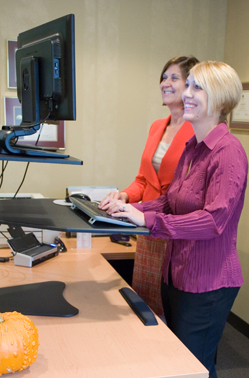
 The FPA National Conference welcomed key note speakers Mary Matalin and James "the ragin cagin" Carville to share their personal story and political insights. One a deep rooted Democrat, one a staunch Republican. As you may expect, their personal opinions and political values could not be farther apart.
The FPA National Conference welcomed key note speakers Mary Matalin and James "the ragin cagin" Carville to share their personal story and political insights. One a deep rooted Democrat, one a staunch Republican. As you may expect, their personal opinions and political values could not be farther apart.
Matalin and Carville shared humorous encounters while contributing to the Clinton and Bush presidential campaigns. Individually they addressed our current political landscape and presidential election while lobbying for their respective parties. As their speaking session ended, I felt inspired by the possibility that, regardless of our political affiliation, some day we all may just get a long!
Today they are happily married with two daughters and reside in New Orleans. I believe the lives of Matalin and Carville provide a strong example that we may prosper together regardless of our political affiliations and beliefs.
Matalin and Carville affirm that both parties - Republicans and Democrats - share an intense desire in serving the needs of the American people. It’s clear the HOW may differ, but at the end of the day, they continue to love, care, and respect each other.A lesson we may all benefit from as the Presidential race continues to intensify!
 James "The Ragin' Cajun" Carville is America’s best-known political consultant. His long list of electoral successes includes leading Ehud Barak to victory to become Prime Minister of Israel in 1999 and most notably helping to secure William Jefferson Clinton as President of the United States in 1992.
James "The Ragin' Cajun" Carville is America’s best-known political consultant. His long list of electoral successes includes leading Ehud Barak to victory to become Prime Minister of Israel in 1999 and most notably helping to secure William Jefferson Clinton as President of the United States in 1992.

Mary Matalin is a prominent political figure who has made frequent television and radio appearances and is a New York Times bestselling author. Her political successes include serving under President Ronald Reagan, George H. W. Bush, and George W. Bush. She lives in New Orleans with her husband, James Carville, and their two daughters.


















